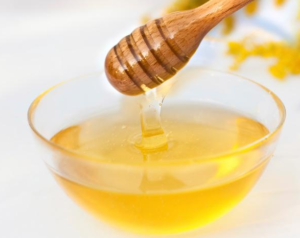Is a tickle in throat a sign of allergies? Having a throat with a feeling like a tickle can be irritating and makes you uncomfortable especially when you experience it in the night. What causes your throat to feel like a tickle? Is it cancer, asthma or acid reflux? In this post, we have a comprehensive discussion on the causes of a throat with a tickle and how you can get rid of it.
Do you experience a tickly cough? If you have a cough that does not produce mucus also known as non-productive cough, you would feel like there is something in the throat. This kind of cough is distinct from the chest cough where mucus is produced whenever you cough.
Your throat gets irritated by a number of causes, allergens included. In the end a tickly cough is triggered to get rid of the irritation.
Do you experience a constant dry cough at night? When you get a persistent cough that is coupled with a tickle, you could be having throat dryness. It is common to have a feeling of a tickle in throat resulting from cold, allergy or an infection.
In some instances, the tickle can be caused by serious underlying medical condition such as cancer, pneumonia or bronchitis. Below are a number of causes of throat with a tickle like feeling.
What causes tickle in throat
What causes your throat to have a tickle? A throat that tickles is closely related to dry throat and can be the reason you have a dry cough. Read more on the causes of the tickly cough and throat.
1. Tickly throat after cold
Do you a tickly cough after cold or flu? Cold or flu is one of the common cause of a dry cough where mucus is not produced. Cold or flu viruses can be transferred from our hands to the nose and mouth. Inflammation will follow at the back of the throat and larynx.
If you have a weak immune system, infection occurs further in your respiratory system. An infected respiratory tract inhibits production of excessive mucus. This triggers a cough reflex from the nerves lining along the area of the infected respiratory tract.
A cold air can as well cause you to get that tickly cough. The tickle in throat can last for days or even weeks after the inflammation is healed. If you have a mild dry cough, there is actually no need to see a doctor.
2. Is tickly cough a sign of cancer
Persistent cough that lasts for long could be a symptom of major underlying medical condition. A cough that feels like a lump in your throat, you may end up having a nasty or bitter taste in the mouth. The cause could be a reflux from the stomach, which triggers coughing.
The reflux can cause a condition called Barrett’s Esophagus- the cells along the lining of the esophagus grow abnormally increasing the risk of cancer of the esophagus.
If your cough lasts for more than eight weeks, you need to see a GP. One possible cause is lung cancer. A persistent cough that is coupled with breathing difficulty can easily be mistaken for chest infection while it is actually cancer of the lungs. Unlike chest cough which lasts for weeks, lung cancer tends to stay for long spreading even to the other organs.
Although lung cancer is rare, it’s vital you don’t take it for granted and get checked by your GP as soon as you notice symptoms. Treatment depends on the stage and size of the tumor on your lungs. Usually, surgery, radiotherapy or chemotherapy are some of the available treatments.
3. Can Asthma cause a tickly throat?
Most people would consider wheezing as the key symptom of asthma, this can be true but there are other unusual signs of asthma. Asthma can actually cause you to have a tickly throat. The symptom include, having a persistent cough coupled with chest tightness and difficulty in breathing especially in the early hours of the morning.
Asthma is caused by factors such as: allergens, dust, smoke or even cold air. Asthma tends to affect the lungs interfering with breathing and a dry tickly cough. Infections in the lungs reduces the production of phlegm.
It is actually hard to detect asthma, some other health related conditions such as: heart failure, bronchitis and vocal cords dysfunction tend to present symptom that are related to asthma.
A severe cough is unusual symptom of asthma which appear after cold or as a result of infection in upper tract of the respiratory system. A chronic cough due to asthma starts as a tickle in throat.
Effective treatment of asthma requires accurate diagnosis from your healthcare provider.
4. Allergies tickle in throat
Do you have allergies in your throat? If you suffer from a condition known as allergic rhinitis, you develop symptoms such as: sneezing all the time, a running nose and a tickle in your throat or dry cough. In most case, postnasal drip has been identified as the prime cause in allergy- induced tickle throat.
When your throat is exposed to allergens, postnasal drip occurs as soon as the sinuses drains down your throat. This has the effect of causing a tickly or scratchy pain in the throat. The symptoms begin as soon as you breathe in the allergens.
Treatment involves preventing allergies, treat your allergies to alleviate a tickle in throat and other related conditions. If you smoke, you have to stop otherwise you risk exposing your throat to irritants like smoke from cigarette and pollens.
Attempts to completely avoid allergies can be very challenging and prove to be futile. This does not mean you quit attempts to avoid or treat. There are medications to reduce the risk and exposure. Over –the –counter medications including antihistamines can be helpful during the worst seasons of the year.
5. Tickly cough after quitting smoking
Can you get a dry cough and a tickly throat even after quitting smoking? Smoking filters or weed irritates the throat and can leave you with a horrible scratch in your throat. It makes you feel like a hair and clearing your throat may be intense especially during the night.
This happens even after you quit smoking days or months after. When you smoke for some years, the cilia: tiny hair like projection lining the respiratory tract are destroyed by the smoke and chemicals content in the cigarette. The impurities find easy way and land on the respiratory tract as we breathe on a regular basis.
After stopping smoking, the tract begins to repair itself and what follows is the cilia regenerating along the lining the respiratory tract. The tickly cough is the natural process of cleaning and healing from the lungs.
However, in some instance a cough might last for weeks accompanied by pain and or fever. Such case should be checked by a physician to examine other health problems that cannot be linked quitting smoking.
6. Tickle cough during early pregnancy
Are you having a persistent cough that lasts during early pregnancy? A rough cough that tickles can be experienced during pregnancy for a number of reasons. It is obvious that your body immune system is lowered, it is not surprising to catch a cough.
A cough during pregnancy is sign of infection which should clear in not more than two weeks. A cough is the responsive action to clear the air passage of the mucus and irritants. In addition, coughing constantly during pregnancy is common; hormonal fluctuations is the cause for changes in throat and mouth.
If the cough is persistent, it could be a symptom of a sinus infection that irritates the throat and makes it dry. Visit your health care provider to have the problem sorted. Some of the home remedies to be discussed later in the post can help get rid of a tickly throat.
7. Dry irritating tickly cough after surgery
Can you get a dry cough that tickles after surgery? A surgery around the throat such as tonsillectomy can cause you to have a dry cough and a tickle in the throat. The tickle in the throat could be related to the breathing tube that is placed into your mouth and to the entrance of your lungs.
Some people who go for septorhinoplasty, have had sore throat which feels like laryngitis and can be coupled with a dry irritating cough. You are likely to get a tickle in the throat that can make you to cough uncontrollably for few minutes.
8. Is a tickle in throat pneumonia?
If you have an inflammation of the lung, you are likely to get pneumonia. This condition is quite disturbing especially if you have a weak immune system and for people suffering from AIDS. The good news is, it can be treated especially for children and adolescents. The common cause of pneumonia is by virus, chemical irritants or basically foreign bodies that inflames the lungs.
Infection in the lungs pneumonia is caused by an organism called Mycoplasma pneumoniae. You are prone to respiratory infections, this phenomena is common in children and young adults. The ciliated cells along the respiratory tract are destroyed and one can a tickle in throat followed by deep dry cough.
9. Tickle throat after bronchitis
If you have an acute bronchitis, the main airways to the lungs is seriously affected which lasts for a brief period of time. On the other hand, chronic bronchitis tends to persist for a longer period of time. A viral infection to the respiratory tract is the common cause for acute bronchitis, you are even at risk of getting bronchitis if you‘ve had a recent illness or viral respiratory infection.
This reduces the ability to fight off infections, you are prone to have chronic lung problems including asthma or cyst fibrosis.
A tickle at the back of the throat is a classic symptom of bronchitis. This can happen after the viral infection has gone away leading to a dry, irritating cough. As the infection gets worse, thick yellow mucus that sometimes have stains of blood will be noticed.
If the cough persists for more than two weeks, has blood, a tickle at the back of your throat that leads to soreness and or you experience shortness in breathing, you should visit your healthcare provider for treatment.
10. Scratchy throat from singing
Can you get a tickly throat after or from singing? A tickle throat can be caused from throat dryness which can lead to coughing. Singing or screaming will often cause throat irritation and interferes with voice and consequently the singing process.
Stretching your voice can cause a chest stretching, this leads to a little swelling or a feeling of a lump at the back of your throat. You may consequently feel irritation or scratchy feeling that might take days to recover. A tickle in throat from singing causes a slightly dry cough for quite some time before you heal.
Treatment of a tickle in throat may involve simple home remedies such as drinking warm lemon tea combined with a considerable amount of honey.
11. Dry cough from smoking weed.
Can you a tickle in throat when smoking weed? Anytime you smoke weed, it directly goes to the lungs through the airways through the throat. Smoke from weed will irritate the throat especially if you are vaping it for the first time. Inhaling smoke from weed causes the throat to be dry and you get a feeling of a tickle in your throat.
Similarly, smoking weed can coat the throat with tar causing adverse health complications such as cancer of the throat.
Tickle in throat cough or dry cough
Do you get dry cough or a tickle in throat? Dry cough is considered non- productive usually caused by irritation or inflammation in your throat and or the chest. A normal cough is characterized by production of mucus or phlegm as a way in which the body removes foreign substances from the lungs and airway passages.
If you have a dry cough or tickly cough, it signifies infections either by cold or flu viruses that attacks your respiratory tract. Your lifestyle can also influence you to get dry cough, for instances majority of smokers are prone to have tickly coughs. Their throats become irritated or inflamed and the cough tends to come from deep in their chests.
Constant tickle in throat, persistent, annoying cough
A persistent cough in your throat can be annoying and embarrassing. This is a message that you have a major underlying medical condition such as:
- Tuberculosis – Coughing persistently is classical symptom of tuberculosis. This condition majorly affects your lungs and makes you to cough endlessly. It is highly infectious disease caused by a bacteria called mycobacterium tuberculosis and other than the lungs, it can affect the brain, kidney and spine.
- Whooping cough – this is also another bacterial infection that basically affects the lungs and cause the victims to have persistent coughs. The victims becomes short of breathiness and gasp for air in a distinctive whooping sound.
- Cancer of the lung – if you have annoying cough that lingers for more than three weeks, you should consult your healthcare provider. It could be a sign of lung problems including lung cancer.
Tickle in my throat that won’t go away
Are you having a tickle in your throat that won’t go away? A cough that keeps on coming back for days, weeks after a moth can be frustrating. You could be suffering from a serious health conditions which is at the onset of full blown.
A tickle in the throat that won’t go away could be asthma, allergies, heart disease or whooping cough. You need to have your throat evaluated to see if the cause can be identified and treated.
Chronic dry tickle in throat at night
Chronic dry tickle at the back of the throat at night are mostly caused by irritations from cigarette smoke, allergies, postnasal drip or asthma. A cough in the night can be nagging and cause you have sleepless night.
Other than the aforementioned cause of chronic dry tickle in throat, most people get dry cough from the following:
- Sinusitis – a sinus infection that keeps on recurring could be the reason you’re having a tickly cough at night. If the sinuses are infected, the mucus drips down the back of the throat causing a dry annoying tickle in the night.
- Acid reflux – if you’re having acid reflux disease such as GERD, you are prone to have coughs that tickles.
- Deficiency if iron – if you have inadequate iron in your diet, you may experience swelling and irritation at the back of your throat. This makes your throat to be dry and tickly cough is what follows.
How to get rid of a tickle in your throat
How do you get rid of a tickle in your throat effectively? Listed below are a number of simple home remedies that can help you to relieve a tickly cough instantly.
1. Lemon and Honey Tea

A cup of a recipe of lemon and honey tea can help you get the tickle in your throat going fast. Here’s how to get rid of dry cough with homemade drink of honey combined with lemon juice.
- Extract juice from a fresh lemon fruit and pour in a cup
- Add two teaspoon of organic honey
- Sip this drink slowly to help get rid of the tickle in your throat.
2. Gargle with warm salt water
- Add sea salt to glass of warm water
- Gargle with the sea salt water
- You can gargle twice daily to effectively relieve the dry cough.
The mixture of salt and water is able to remove the cough and also inflammation in your throat.
3. Apple Cider Vinegar
Apple cider vinegar is able to get rid of throat infection and consequently relieve a tickle cough. Use apple Cider Vinegar with warm water to help get rid of a dry cough. Here’s how to use apple cider vinegar for throat and cough problems.
- Warm water slightly above room temperature
- Pour the water in a glass
- Add a few tablespoon of apple cider vinegar to the glass of warm water
- Gargle to relieve the tickle in your throat
- You can add drops of honey to make it sweet.
4. Drink warm Water
A tickly cough is basically caused by a dry throat, you can cure this problem at home by simply taking warm water. Drink plenty of warm water daily to keep your throat hydrated. Make it a habit of taking glasses of warm daily especially before bed time. Warm water helps to moisturize your throat and reduces any swelling or irritation.
5. Aloe Vera juice
To help relieve a tickle in your throat, aloe Vera juice will work best for you. While preparing aloe Vera juice, make sure you use freshly cut aloe Vera plant. Aloe Vera juice has anti-inflammatory, antibacterial and antiseptic properties that can help reduces inflammation around your throat.
6.Ginger Tea
Drinking ginger tea is another simple home remedy to help you stop a tickle in your throat. Make a cup of warm ginger to effectively get rid of a tickle in your throat. Ginger has soothing properties that can also help you to cure a dry cough at night.

7. Clean your beddings
A tickle in your throat at night can be avoided by simply making your bedding clean. Sleeping in dusty bed often causes allergic reactions. Make sure you clean your bedding at least once in a week. This helps in reducing breathing dust or any foreign objects at night while you are at sleep.
Sources and references:
- http://www.avogel.co.uk/health/immune-system/cough/tickly/
- http://www.dailymail.co.uk/health/article-1348087/Tickly-dry-chesty-What-nasty-cough-REALLY-means.html
- ,http://www.webmd.com/allergies/tc/allergic-rhinitis-symptoms
- http://www.healthline.com/health/allergies/sore-throat – Overview1
- http://www.medhelp.org/posts/Respiratory-Disorders/Quit-smoking-now-constant-tickle-in-throat/show/1473043
- http://www.nytimes.com/health/guides/disease/acute-bronchitis/overview.html
